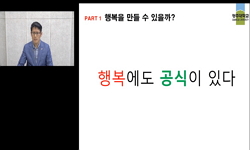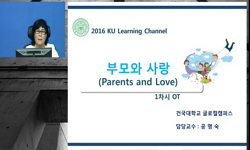이 연구의 목적은 사회자본 이론을 적용해서 영유아기 자녀를 양육하는 기혼 여성의 사회자본을 알아보는 것이다. 만 5세 이하의 자녀를 둔 취업 여성 284명, 비취업 여성 287명에게 수집한 자...
http://chineseinput.net/에서 pinyin(병음)방식으로 중국어를 변환할 수 있습니다.
변환된 중국어를 복사하여 사용하시면 됩니다.
- 中文 을 입력하시려면 zhongwen을 입력하시고 space를누르시면됩니다.
- 北京 을 입력하시려면 beijing을 입력하시고 space를 누르시면 됩니다.
https://www.riss.kr/link?id=A82726505
- 저자
- 발행기관
- 학술지명
- 권호사항
-
발행연도
2011
-
작성언어
Korean
-
주제어
사회자본 ; 자녀 양육 ; 취업 여부 ; 기혼 여성 ; Social capital ; Child-rearing ; Employment status ; Married women
-
등재정보
KCI등재
-
자료형태
학술저널
-
수록면
91-111(21쪽)
- 제공처
- 소장기관
-
0
상세조회 -
0
다운로드
부가정보
국문 초록 (Abstract)
이 연구의 목적은 사회자본 이론을 적용해서 영유아기 자녀를 양육하는 기혼 여성의 사회자본을 알아보는 것이다. 만 5세 이하의 자녀를 둔 취업 여성 284명, 비취업 여성 287명에게 수집한 자료로 이들의 사회자본 특성과 취업 여부에 따른 차이, 그리고 사회자본에 영향을 미치는 요인을 살펴보았다. 기혼 여성의 사회관계망은 취업 여부에 따라서 서로 다른 특성을 가진 사람들로 구성되어 있었다. 취업 여부에 따라서 이들이 접근할 수 있는 사회자본에는 차이가 없었던 반면, 경제적 지원과 돌봄 지원을 위해서 동원할 수 있는 사회자본은 취업한 여성에게서 더 많은 것으로 나타났다. 취업 여부 변수는 돌봄 지원을 위해 동원할 수 있는 사회자본을 유의하게 예측했으며, 사회관계망 관련 변수들의 영향은 기혼 여성이 동원하고자 하는 사회자본의 종류에 따라 다르게 나타났다. 이는 취업과 자녀 양육에 대한 기혼 여성의 선택이 돌봄 지원을 위해 동원할 수 있는 사회자본에 반영됨을 시사한다. 또한 기혼 여성의 친족 관계의 중요성과 사회자본을 형성하기 위한 지원방안이 논의되었다.
다국어 초록 (Multilingual Abstract)
Based on social capital theory, this study intends to understand accessed and mobilized social capital of married women with young children and the difference between two types of social capital in terms of their employment status. Factors related to ...
Based on social capital theory, this study intends to understand accessed and mobilized social capital of married women with young children and the difference between two types of social capital in terms of their employment status. Factors related to accessed and mobilized social capital are also investigated. The subjects are 571 married women (284 employed and 287 unemployed) who have children younger than 5 years old. Their networks are revealed to show different composition and resource distribution according to the respective employment status. No significant difference is found in accessing social capital depending on the employment status. However, working women are capable of mobilizing more social capital for economic resources and child-care assistance than non-working women. The employment status is significant only in mobilizing social capital related to child-caring assistance. The effects of variables related to social networks of married women differ according to the types of resources sought for. The choices of married women on the employment status and child-rearing are observed in the findings of the ability to mobilize social capital for child-care assistance. The importance of kin ties and various social services for building social capital are discussed.
목차 (Table of Contents)
- Ⅰ. 서론
- Ⅱ. 사회자본의 이론적 배경
- Ⅲ. 연구방법
- Ⅳ. 연구 결과
- Ⅴ. 논의 및 결론
- Ⅰ. 서론
- Ⅱ. 사회자본의 이론적 배경
- Ⅲ. 연구방법
- Ⅳ. 연구 결과
- Ⅴ. 논의 및 결론
- 참고문헌
동일학술지(권/호) 다른 논문
-
- 한국인구학회
- 김정석(Cheong-Seok Kim)
- 2011
- KCI등재
-
- 한국인구학회
- 차승은(Seung-Eun Cha)
- 2011
- KCI등재
-
부모, 친구, 교사, 지역사회 지지와 청소년의 자살충동간 인과관계 분석
- 한국인구학회
- 김현주(Hyunju Kim)
- 2011
- KCI등재
-
12세 이하 아동이 있는 편부·편모 가구의 사회경제적 특성 비교
- 한국인구학회
- 이연주(Yean-Ju Lee)
- 2011
- KCI등재






 ScienceON
ScienceON DBpia
DBpia







